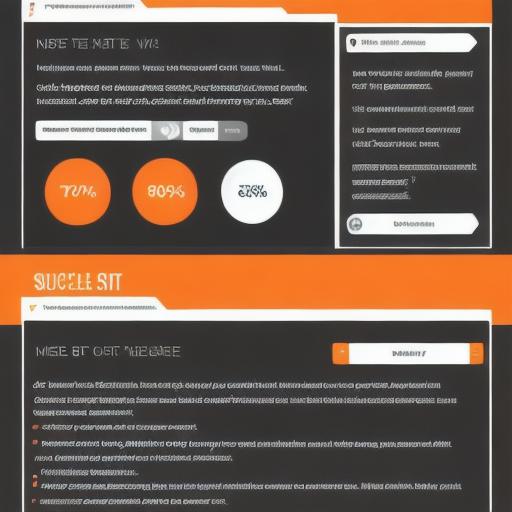If you’re looking to promote your business, product, or service, there are countless marketing tools at your disposal. In this comprehensive guide, we’ll explore some of the most effective and popular promotion strategies used by marketers today. We’ll also discuss how to optimize your content for search engines (SEO) to increase your online visibility and attract more traffic to your website.
Table of Contents
1.
Introduction
2.
Effective Marketing Tools
*
Social Media Marketing
*
Content Marketing
*
Email Marketing
*
Influencer Marketing
*
Search Engine Optimization (SEO)
3.
How to Optimize Your Content for SEO
4. Real-Life Examples and Case Studies
5.
Conclusion
6. FAQs
Introduction
Marketing is a complex and ever-evolving field. With the rise of digital technology, marketers now have access to a vast array of tools and strategies that can help them promote their products or services effectively. Whether you’re new to marketing or an experienced professional, understanding these tools and how to use them correctly is crucial for success.
In this guide, we’ll explore some of the most effective promotion strategies used by marketers today, including social media marketing, content marketing, email marketing, influencer marketing, and search engine optimization (SEO). We’ll also discuss how to optimize your content for SEO to increase your online visibility and attract more traffic to your website.
Effective Marketing Tools
Social Media Marketing
Social media is one of the most powerful marketing tools available today. With billions of active users, social media platforms like Facebook, Twitter, Instagram, and LinkedIn provide marketers with a unique opportunity to reach a massive audience quickly and easily.
But social media marketing is not without its challenges. To be effective, you need to understand your target audience, create engaging content, and use the right social media channels for your business. You also need to monitor your social media metrics regularly to see what’s working and adjust your strategy accordingly.
Here are some tips for using social media effectively:
- Create a social media calendar to plan out your content in advance. This will help you stay organized and ensure that you’re posting consistently across all your channels.
- Use visual content like images and videos to grab your audience’s attention and make your posts stand out.
- Engage with your followers by responding to comments and messages promptly, asking for feedback, and running contests and giveaways.
- Measure your social media metrics regularly to see which posts are performing well and adjust your strategy accordingly. You can use tools like Google Analytics or social media analytics software to track your engagement rates, follower growth, and more.
Content Marketing
Content marketing is a powerful way to engage with your audience and build trust and credibility with them. By creating valuable, educational content that provides solutions to their problems, you can establish yourself as an authority in your industry and attract more traffic to your website.
Here are some tips for using content marketing effectively:
- Identify your target audience’s pain points and create content that addresses them directly. This will help you attract the right people to your website and engage with them more effectively.
- Use a variety of formats like blog posts, infographics, videos, and eBooks to keep your content fresh and interesting.
- Promote your content across all your marketing channels, including social media, email marketing, and influencer marketing. This will help you reach a wider audience and drive more traffic to your website.
- Measure your content metrics regularly to see which types of content are performing well and adjust your strategy accordingly. You can use tools like Google Analytics or content analytics software to track your engagement rates, time on site, and more.

Email Marketing
Email marketing is a highly effective way to engage with your audience and promote your products or services directly. With email marketing, you can reach people who have already shown an interest in your brand and build a relationship with them over time.
Here are some tips for using email marketing effectively:
- Build a targeted email list by offering something valuable in exchange for their contact information, like a free eBook or a discount code.
- Use personalization to make each email feel relevant and tailored to the recipient’s interests and needs. This will help you build trust and increase engagement rates.
- Use a variety of content formats like images, videos, and social media links to keep your emails interesting and engaging.
- Measure your email metrics regularly to see which types of emails are performing well and adjust your strategy accordingly. You can use tools like Mailchimp or email marketing software to track open rates, click-through rates, and more.
Influencer Marketing
Influencer marketing is a powerful way to reach new audiences and build credibility with them by partnering with influencers in your industry. Influencers have large followings on social media and can help you reach new people quickly and effectively.
Here are some tips for using influencer marketing effectively:
- Identify the right influencers for your brand based on their audience demographics, interests, and engagement rates.
- Create a clear and compelling pitch that explains how the influencer can benefit from partnering with your brand and what you’re looking to achieve.
* Agree on a clear scope of work and compensation terms upfront to avoid misunderstandings later on.
- Measure the success of your influencer campaign by tracking engagement rates, website traffic, and sales conversions. You can use tools like Google Analytics or social media analytics software to track these metrics.
Search Engine Optimization (SEO)
Search engine optimization (SEO) is the process of optimizing your website’s content and structure to improve its visibility in search engines like Google. By ranking higher in search results, you can attract more traffic to your website and increase your chances of converting visitors into customers.
A PLACE FOR A PICTURE #2
Here are some tips for using SEO effectively:
- Conduct keyword research to identify the terms and phrases that people use when searching for products or services related to your business. Use these keywords throughout your website’s content to help search engines understand what your site is about.
- Optimize your website’s structure by using clear and concise headings, meta descriptions, and alt tags for images. This will make it easier for search engines to crawl and index your site.
- Build high-quality backlinks from other websites in your industry to improve your website’s authority and credibility. You can do this by guest posting on other sites or reaching out to relevant bloggers and journalists.
- Measure your SEO metrics regularly to see which pages are performing well and adjust your strategy accordingly. You can use tools like Google Analytics or SEO software to track your rankings, traffic, and more.
How to Optimize Your Content for SEO
To optimize your content for SEO, you need to understand how search engines work and what they’re looking for in terms of relevance, authority, and user experience. Here are some tips to help you optimize your content:
1. Conduct keyword research to identify the terms and phrases that people use when searching for products or services related to your business. Use these keywords throughout your website’s content to help search engines understand what your site is about.
2. Optimize your headings, meta descriptions, and alt tags for images to make it easier for search engines to crawl and index your site.
3. Build high-quality backlinks from other websites in your industry to improve your website’s authority and credibility. You can do this by guest posting on other sites or reaching out to relevant bloggers and journalists.
4. Create valuable, educational content that provides solutions to your audience’s problems. This will help you attract the right people to your website and increase engagement rates.
5. Use a variety of formats like blog posts, infographics, videos, and eBooks to keep your content fresh and interesting.
6. Promote your content across all your marketing channels, including social media, email marketing, and influencer marketing. This will help you reach a wider audience and drive more traffic to your website.
7. Measure your SEO metrics regularly to see which pages are performing well and adjust your strategy accordingly. You can use tools like Google Analytics or SEO software to track your rankings, traffic, and more.
Real-World Example of Successful Content Optimization
One great example of successful content optimization is HubSpot’s "Inbound Marketing" blog post. This post has been shared over 500,000 times on social media, generated over 2 million leads for the company, and contributed to their overall success as a thought leader in the marketing industry.
HubSpot optimized this content by identifying relevant keywords like "inbound marketing," creating valuable, educational content that addressed people’s pain points, and promoting it across all their marketing channels. They also built high-quality backlinks from other websites in their industry to improve their authority and credibility. As a result, this post has become one of the most successful pieces of content on the internet.
Conclusion
Content marketing is becoming increasingly important for businesses of all sizes as they look for new ways to engage with their audience and drive traffic to their website. By optimizing your content for SEO, creating valuable, educational content that addresses people’s pain points, and promoting it across all your marketing channels, you can attract the right people to your website, build trust and credibility, and increase conversions.




